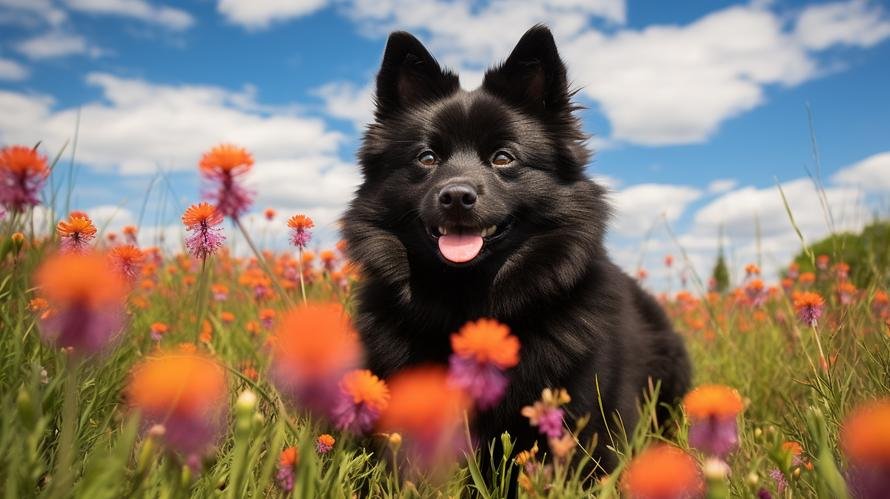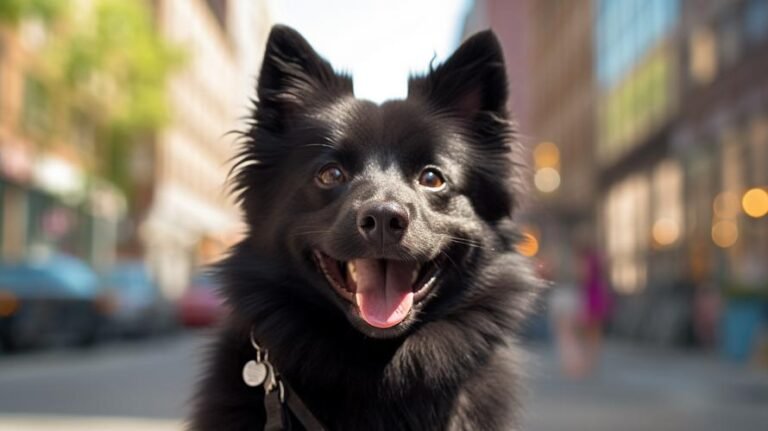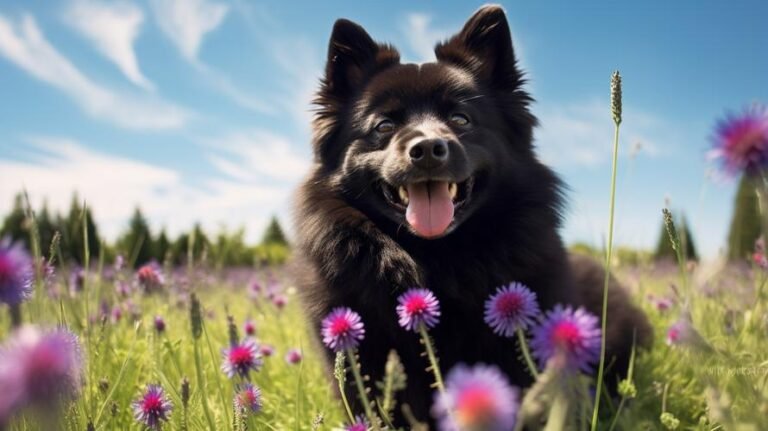Think about a small, agile, and entertaining dog that loves to play and interact with its family. Picture a dog with a beautiful black coat, fox-like face, and a lively personality that instantly fills any room with energy. Imagine a dog that is so caring and protective of its family that it would go to any length to make sure they are safe. Now, let us introduce you to that dog – the Schipperke!
The Schipperke (pronounced “SKIP-er-kee”) is a kind-hearted Belgian breed that is often recognized for its distinctive small size, reserved temperament, and boat-shaped body. However, its unparalleled loyalty, intelligence, and determination are the true qualities that endear it to many families worldwide. In the 16th century, these dogs served as watchful protectors and vermin hunters in Flemish households and even onboard merchant ships, earning them the nickname “Little Captain.”
As a family dog, the Schipperke is a package full of surprises. Despite their small stature and seemingly serious disposition, these dogs have hearts of pure gold and playful spirits that can light up even the gloomiest of days. They are fond of children, get on well with other dogs when properly introduced, and have no trouble becoming an integral part of any family. Their alert nature allows them to serve as excellent guard dogs, always on the lookout for anything unusual.
However, as you venture into the lifelong commitment of owning a Schipperke, it’s important to remember that these dogs are a unique blend of traits, responsibilities, and challenges. A Schipperke isn’t just a pet; it teaches the value of responsibility, patience, and love. Yes, these dogs are known to be stubborn and independent at times, but with the right amount of care and training, they can become your most faithful companions.
Schipperkes need an ample amount of mental stimulation and physical exercise. Regular walks and plenty of playtime are crucial for these active dogs. Puzzle toys, agility training, and games of fetch are all fantastic ways to keep your Schipperke entertained and happy.
Remember, early socialization is also critical for this breed. This small dog tends to be suspicious of strangers, making introductions to a wide range of people, places, and experiences important to raise a well-rounded and confident pet. Therefore, a household that provides these opportunities makes an ideal home for a Schipperke.
Moreover, the Schipperke’s thick double coat, while beautiful and easy to maintain, does shed quite a bit. If you or a family member is particularly sensitive to pet hair, this is an important factor to consider before bringing a Schipperke into your home. Regular brushing will also be necessary, especially during the bi-annual periods when they heavily “blow” their undercoat.
When it comes to training, Schipperkes are quick on the uptake. Positive reinforcement techniques work best, but keep the sessions short and engaging to harness their curiosity and playfulness effectively.
Finally, remember that these dogs are prone to certain health diseases like hip dysplasia, eye problems, and thyroid dysfunction. Regular veterinary checkups will help ensure your Schipperke lives a long and healthy life.
So, is a Schipperke a good family dog? Absolutely! This breed’s adaptability, love for fun and games, innate protectiveness, and undying loyalty make them fantastic family pets. They come with their own set of responsibilities and challenges, but with consistent training, patience, and copious amounts of love, they will reward you with years of companionship and joy.
Planning for a new family member is an exciting time. If your family values a dog with character, loyalty, and a zest for life, a Schipperke could be your perfect match. After all, what can be more rewarding than being greeted by those twinkling eyes and that bright infectious energy every single day, reminding you that, indeed, “A house is not a home without a Schipperke!”



